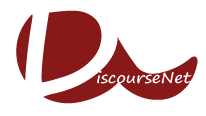Otto-Behaghel-Straße 12
35394 Giessen
Alemanha


The culture studies centre Graduate Centre for the Study of Culture at Justus-Liebig-University in cooperation with the DiscourseNet-Association cordially invites you to participate in our conference on "Knowledge - Between Discursive Construction and Cultural Contextualization”. Connecting with the work of the GCSC research group "Cultures of Knowledge, Research, and Education”, we aim to bring together scholars and researchers from various disciplines intersecting cultural and social scientific research.
*** Update: Now one day of online presentations ahead of the conference on May 21! Please note in your submission if you only want to participate online.***
Knowledge is a key dimension of cultural and social processes. It is not only the targeted aim of research and therefore subject to specific conventions, standards and rules, but also tied up with phenomena such as subject formation, structures of power and mechanisms of social exclusions. Recent decades have brought a multitude of discussions about various facets of knowledge: from epistemological concepts of knowledge to embodied implicit knowing, from the marginalization of discourses under colonial and neo-colonial domination to a critique of the values of modern sciences as unbiased and based on impartiality. Most recently, there has also been growing interest in discussions revolving around the construction of (post-)truth in the media as well as the implications and consequences of using artificial intelligences as bodies of knowledge.
Not only in the contemporary context of knowledge societies, it is a key dimension of the fundamental distribution of power in discourses, emerging from and shaping different cultures of knowledge, forming our perception of the world and thus constructing sociocultural realities.
To explore our topic we suggest asking:
- How is knowledge constructed within specific laws and rules of discourses and thereby constituting a certain culture of knowledge production?
- How is knowledge ‘deculturalized’ to uphold claims of objectivity, neutrality or truth within different knowledge-cultures?
- How do knowledge cultures affect sociocultural realities, how do they transform practices, reiterate meaning and (re-)frame interpretations of knowledge?
- How is knowledge transferred and cultivated between distinctive orders of knowledge?
- How is knowledge tied to cultural specifics and how does it contribute to the (re-)conception and production of sociocultural development?
- Which challenges and opportunities arise with the transformation and revolution of knowledge and knowledge cultures?
We encourage, but are not limited to, contributions that explore the following sub-themes:
- Knowledge cultures and their impact on society and politics
- Discourses and their role in knowledge construction
- Intercultural aspects of knowledge cultures and discourses
- Power relations and hierarchies in knowledge cultures and discourses
- Alternative knowledge systems and practices as challenges to established discourses
- Technology and digital media in knowledge cultures and discourses
- Gender perspectives in knowledge cultures and discourses
- Migrant knowledge and cultural transitions/transformations
- Education and knowledge dissemination in a changing society
- Organizational education, knowledge production and discourse
- Ethics and responsibility in knowledge cultures and discourses
- Future-oriented approaches to promoting inclusive knowledge cultures and discourses
- Socio-ecological transformation processes in knowledge cultures and discourses
- The construction of (post-)truth within media, sciences, communities, ...
- Implications and consequences of using artificial intelligence
- Discrimination, racism and antisemitism as discourses and dispositives
- Academic knowledge-production, -justification and their relation to multiple sociocultural realities
- Theoretical and/or methodological contributions to the analysis of knowledge and knowledge-cultures
Besides of the 15 to 20-minutes presentations there will be a thematically open poster session with a separate call for young local researchers, but if you (additionally or solely) want to contribute a poster, we welcome you to contact the organizational team.
- 1201 visualizações